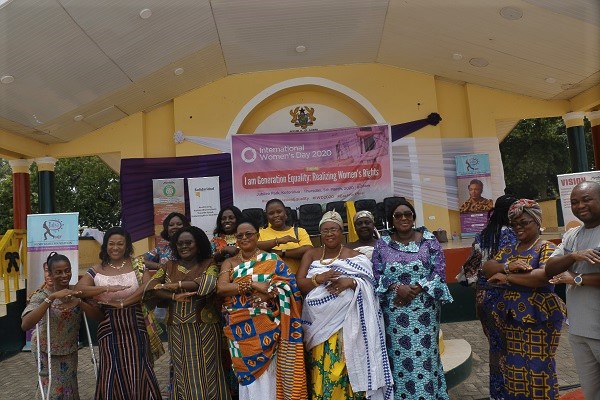
Govt to enact Affirmative Action Law - Deputy Minister for Gender
The Deputy Minister for Gender, Children and Social Projection, Ms Freda Prempeh, says the government is on the verge of enacting an Affirmative Action law to reduce gender gaps in all sectors of the economy.
She explained that the government was also considering the enactment of domestic workers regulations to strengthen the legal framework and aid in the reduction of gender gaps.
The deputy minister made the revelation last Thursday at a ceremony in Koforidua to commemorate the International Women’s Day (IWD) under the theme: “I am Generation Equality: Realising women’s rights”.
Affirmative Action & Quota system
According to her, the action was of essence to accelerate “the 2030 agenda to build momentum for the effective implementation of the Sustainable Development Goals (SDGs)” to achieve gender equality and empower all women and girls.
Ms Prempeh stated that the Ministry of Gender had been fighting over the years to make sure women were largely recognised in governance and decision-making positions.
“The Ministry of Gender, Children and Social Protection in furtherance of our activism to get more women into governance and decision-making positions have undertaken a lot of activities since 2017 to ensure the revision and passage of a law to promote affirmative action at all levels of governance and decision-making in Ghana as well as redress other cultural, social and economic imbalance in society,” Ms Prempeh said.
She added that there may be considerations for the introduction of positive discrimination quota systems such as: A “legal quota” to make all political parties comply with the Political Parties Act and elections laws; a “legislative seat quota” to allocate a specific percentage of seats to women; as well as a “quota system by political parties” to mutually allocate a certain percentage of its candidates to women.
Accountability
Addressing the gathering, the Head of Gender and Quality Management Systems of Solidaridad West Africa, Ms Stephanie Donu Sarpong, in a speech read on behalf of the Country Representative of Solidaridad West Africa, Ms Suzan Yemidi, urged women and stakeholders to reflect on achievements and challenges to address the gender disparity concerns.
“The year 2020 provides an opportunity for all stakeholders to reflect and take account of the achievements that have been realised within their respective spaces and also to identify current issues and challenges as well as strategies for addressing the complete realisation of gender equality and the promotion of women’s rights,” she said.
She said this year’s IWD celebration was important for women’s rights advocacy as it marked five years of the implementation of the SDGs; the 20th anniversary of the United Nations (UN) Security Council resolution 1325 on women, Peace and Security; as well as the 10th anniversary of the establishment of the UN Women.
Gender Inclusion Strategy
Nonetheless, Ms Donu Sarpong added that Solidaridad considered both men and women in providing sustainable supply chains for gold, oil palm and cocoa.
She said the organisation was committed to training women on sound financial record keeping and helping them through its Village Savings and Loans Associations to gain access to credit from financial institutions to help them reinvest needed capitals into their businesses.
